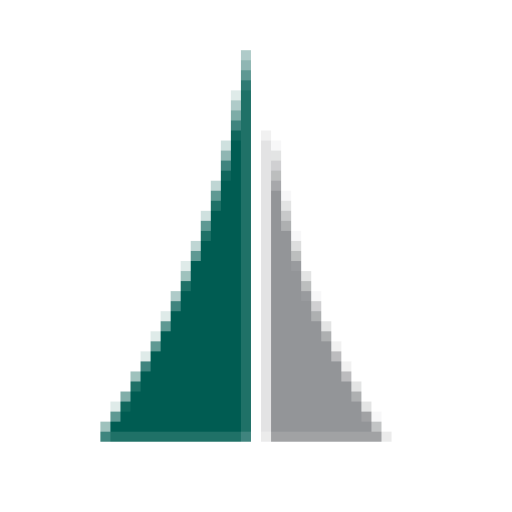Investing has become more accessible than ever, with a wealth of options that let us build a diversified portfolio from the comfort of homes with stock trading software. Decisive Investor is one of the software that allows investing from home. If you’re considering investment strategies, exchange-traded funds (ETFs) and mutual funds are likely high on your list. Both are popular for offering a relatively easy path to diversification, but they each come with unique benefits and limitations. By understanding these differences, we can make a more informed decision about which one aligns with our goals. Let’s break down the characteristics of ETFs and mutual funds to see which could be the better investment option.
Understanding the Basics: ETFs vs. Mutual Funds
ETFs and mutual funds both pool money from multiple investors to purchase a diversified portfolio of assets. This structure provides investors with exposure to a range of securities, lowering the impact of a single asset’s performance on the overall portfolio. However, these two types of funds have key differences in their structure and how they are managed.
An ETF, or exchange-traded fund, is traded on an exchange, much like individual stocks. Investing in ETFs allows investors to buy and sell shares throughout the trading day, with prices fluctuating based on market conditions. “A mutual fund is a company that pools money from many investors and invests the money in securities such as stocks, bonds, and short-term debt. The combined holdings of the mutual fund are known as its portfolio. Investors buy shares in mutual funds. Each share represents an investor’s part ownership in the fund and the income it generates,” says Investor.gov.
One tool that can support you in researching these differences is reliable stock trading programs, which allow you to analyze the performance of both ETFs and mutual funds to decide which is better for your portfolio. By exploring these funds through online trading software, we can easily see price trends, fees, and portfolio composition.
Fees and Costs: A Comparison
One of the major differences between ETFs and mutual funds lies in their fee structures. ETFs generally have lower expense ratios than mutual funds, largely due to their passive management style. Most ETFs track a specific index, requiring less active management, which often translates into lower costs. Mutual funds, particularly actively managed ones, involve a team of managers who make buy-and-sell decisions within the fund, often resulting in higher fees.
These fees can make a significant impact over time, so it’s important to consider the expense ratio when selecting an investment. ETFs usually have an advantage here, especially if you’re aiming for a cost-effective way to diversify. Mutual funds, however, may offer more flexibility in asset allocation if you’re looking for actively managed strategies.
Using the best platform for stock trading can simplify this process by providing tools to compare the fee structures of different funds. Many online platforms include resources to evaluate expense ratios, management fees, and other hidden costs, making it easier to choose investments that match financial goals.
Accessibility and Flexibility
ETFs tend to be more flexible because they can be traded like stocks throughout the day. This intraday trading flexibility allows investors to respond quickly to market movements, an advantage if you prefer hands-on management of your investments. ETFs are also more accessible for those interested in smaller investments, as they usually don’t have minimum investment requirements.
Mutual funds, by contrast, often have minimum investment thresholds, which could be a barrier for some investors. Also, because they are only priced at the end of each trading day, they lack the same level of flexibility as ETFs. If you’re looking for quick entry and exit opportunities, ETFs may be a better choice.
With the help of the best stock trading software, you can explore ETFs to find your preferred trading style. The best platforms often offer in-depth analyses and performance-tracking tools that keep you up-to-date on how your investments are doing. Many online trading software solutions can help you keep tabs on your ETFs.
Active vs. Passive Management
Deciding between an ETF and a mutual fund often boils down to whether you prefer active or passive management. ETFs are typically passively managed, meaning they track an index and require little oversight. This approach can be beneficial if you’re aiming for steady, long-term growth without actively managing your investments. Mutual funds, especially actively managed ones, allow for more tailored investment strategies and flexibility in adjusting to market changes.
Active management can potentially lead to higher returns, but it also introduces a layer of risk, along with higher fees. Passive ETFs, while more stable, may limit your returns in a strong market. That’s why using the best ETF analysis tools can provide insights into the performance of passive vs. active funds.
Making the Right Choice for Your Goals
Both ETFs and mutual funds have their advantages and drawbacks. ETFs offer flexibility, lower fees, and tax efficiency, making them suitable for investors who prefer a hands-on approach and are cost-conscious. Mutual funds, with their active management options, might be more appropriate if you’re willing to pay a bit more for a potentially higher return. If you’re just starting, it’s a good idea to look at investment platforms that offer both types of funds, giving you the flexibility to explore different options. With access to comprehensive stock trading software, we can examine and compare ETFs and mutual funds side by side, which can be a valuable resource for identifying options that best fit our personal investment strategy. If you’re ready to take the next step in your investment journey, Decisive Investor is here to help. With years of expertise and a platform that brings clarity to your investment options, we’re committed to supporting you in making informed, confident choices. To learn more about our program, reach out to us at 801.456.2901.


